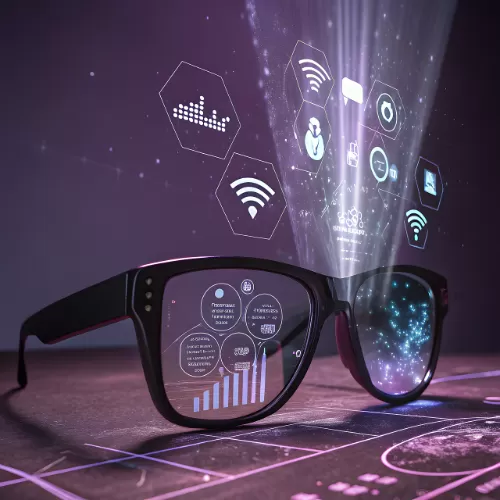Your New Therapist Might Be an Algorithm: How AI Is Changing Mental Health Support
A quiet revolution is unfolding in mental healthcare, where artificial intelligence now offers 24/7 support through chatbots, mood trackers, and virtual counselors. AI in mental health isn’t science fiction – it’s a growing reality helping Americans manage anxiety, depression, and stress with unprecedented accessibility.
Related searches

Understanding AI in Mental Health: More Than Just a Fad
AI in Mental Health refers to technologies designed to analyze, predict, or assist with emotional well-being. These tools use machine learning algorithms to interpret user input—such as text, voice, or even facial expressions—to offer real-time advice, track moods, or connect individuals with resources. Unlike traditional therapy, which often requires scheduling appointments and lengthy waitlists, AI-driven platforms provide instant, anonymous support, appealing to busy lifestyles and those hesitant to seek help.
The Rise of AI-Driven Mental Health Tools
Chatbots: The First Line of Defense
AI-powered chatbots like Woebot and Replika act as virtual companions, offering empathetic listening and cognitive-behavioral therapy (CBT) techniques. They ask questions to assess mood, suggest coping strategies, and even challenge negative thought patterns. For many Americans, these chatbots serve as a non-judgmental first step toward addressing mental health concerns.
Personalized Treatment Plans
Advanced AI in Mental Health systems can analyze data from apps, wearables, or questionnaires to create customized interventions. For example, an algorithm might recommend mindfulness exercises based on a user’s stress triggers or suggest journaling prompts to address anxiety. This personalization bridges the gap between generic self-help resources and one-on-one therapy.
Early Detection of Crises
Some platforms use natural language processing (NLP) to detect signs of depression, suicidal ideation, or trauma in social media posts or private messages. By flagging high-risk individuals, AI in Mental Health tools can help connect them with urgent care before a crisis escalates.
Why AI in Mental Health Resonates with Americans
Accessibility: 45 million Americans live in areas with shortages of mental health professionals. AI tools fill this gap by reaching underserved populations, including rural communities and low-income groups.
Affordability: Traditional therapy costs an average of $100–$200 per session. Many AI-driven apps offer free or low-cost subscriptions, making support accessible to those without insurance.
Anonymity: Stigma around mental health remains a barrier for many. AI tools allow users to seek help without revealing their identity, fostering open dialogue.
The Human-AI Partnership: Complementing, Not Replacing, Therapy
Critics argue that AI in Mental Health lacks the emotional depth of human interaction. While algorithms can’t replace the nuanced understanding of a trained therapist, they play a crucial role in augmenting care:
Reducing Waitlists: AI tools provide immediate support while users wait for in-person sessions.
Tracking Progress: Apps like Daylio use AI to analyze mood patterns, giving therapists data-driven insights to guide treatment.
Challenges and Considerations
Despite its potential, AI in Mental Health faces hurdles:
Privacy Concerns: Storing sensitive emotional data raises questions about cybersecurity and misuse.
Accuracy Limitations: Algorithms may misinterpret context, leading to flawed advice.
Over-Reliance Risk: Some users may prioritize AI interactions over professional help.
The Future of AI in Mental Health
As technology evolves, AI in Mental Health is poised to become even more integrated into daily life. Imagine a world where your smartwatch alerts you to stress spikes, a virtual assistant coaches you through panic attacks, or AI predicts burnout before it happens. Already, companies like Ginger and Lyra Health are partnering with employers to offer AI-enhanced mental health benefits, reflecting a shift toward proactive care.
Conclusion: A New Era of Mental Wellness
For millions of Americans, AI in Mental Health is not a replacement for human connection but a lifeline—a tool that meets them where they are, when they need it most. By democratizing access to support and empowering individuals with personalized insights, AI is transforming mental health from a stigmatized taboo into a proactive, tech-enabled journey.
As we embrace this evolution, the question isn’t whether AI in Mental Health will replace therapists, but how we can harness its power to build a healthier, more compassionate society.

Top 5 Ways Drones Are Changing Your Daily Life

How Cloud Gaming Lets You Play AAA Games on Any Device

The Aging Switch: Could Rewriting Our DNA Add 20 Years to Human Life

Your New Therapist Might Be an Algorithm: How AI Is Changing Mental Health Support

The Invisible Doctor: How Wearables Are Making Healthcare Proactive

Identity Theft: How to Prevent and Fix a Cyber Breach








